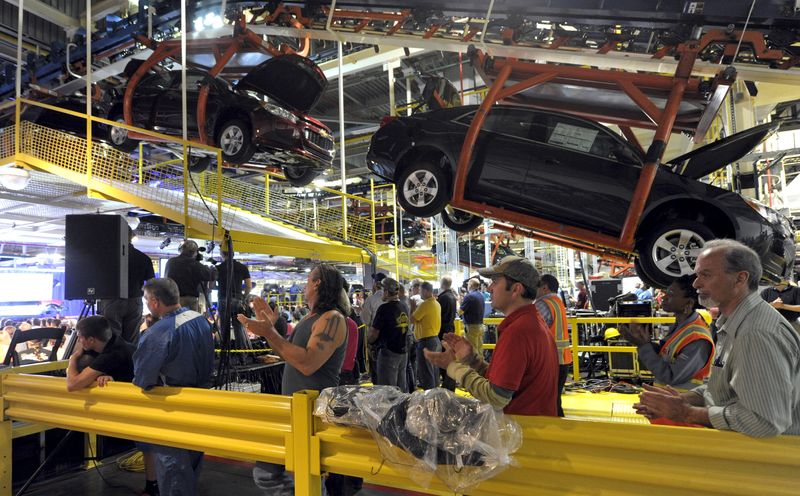By Bernie Woodall
KANSAS CITY, Kan. (Reuters) - General Motors Co's (N:GM) chief executive said on Monday she is confident the company will convince investors of the value of holding on to GM's stock, which has dropped nearly 9 percent since mid-March despite a $5 billion share buyback plan.
The automaker's shares have declined as investors are concerned the U.S. auto cycle has peaked, analysts said. The company makes its profit in North America and in China, where margins are likely to be squeezed.
"This is a business that is not made on a quarter-by-quarter basis," CEO Mary Barra told reporters at a roundtable interview at GM's assembly plant in Kansas City, Kansas.
"We just need to continue to have strong performance, which we did in the first quarter, quarter after quarter, year after year, focus on the right products, the right technology, quality and our customers and over time, we will earn that reputation."
Barra spoke at the Fairfax Assembly plant, where she led a celebration to mark the company producing the 500 millionth vehicle in its history.
Alan Batey, GM's North American president, told Fairfax workers and Kansas politicians that the company will invest $174 million in the plant for new equipment and technology to produce the 2016 Chevrolet Malibu midsize sedan. That vehicle will go on sale later this year.
The investment is part of GM's plan to spend $5.4 billion at its U.S. plants over the next three years.
GM shares were up 0.5 percent at $35.58 on Monday afternoon. That compares with $33 at the post-bankruptcy initial public offering in 2010. GM announced the $5 billion share buyback in March to appease frustrated investors.
Barra said she has not met with Fiat Chrysler Automobiles (N:FCAU) (MI:FCHA) Chief Executive Sergio Marchionne and that GM will continue to follow its own plan regarding investing in product development.
She also said GM will continue to work with partners in particular areas, such as Honda Motor Co (T:7267) for fuel cell development and SAIC Motor Corp Ltd (SS:600104) in China.
Barra declined to discuss U.S. labor costs in detail. The company and the United Auto Workers union enter contact talks this summer.

"We're going to work very hard in constructive problem-solving with our union partners to make sure we have agreements that are good for the company, good for the workers, allow us to maintain our competitiveness," she said.